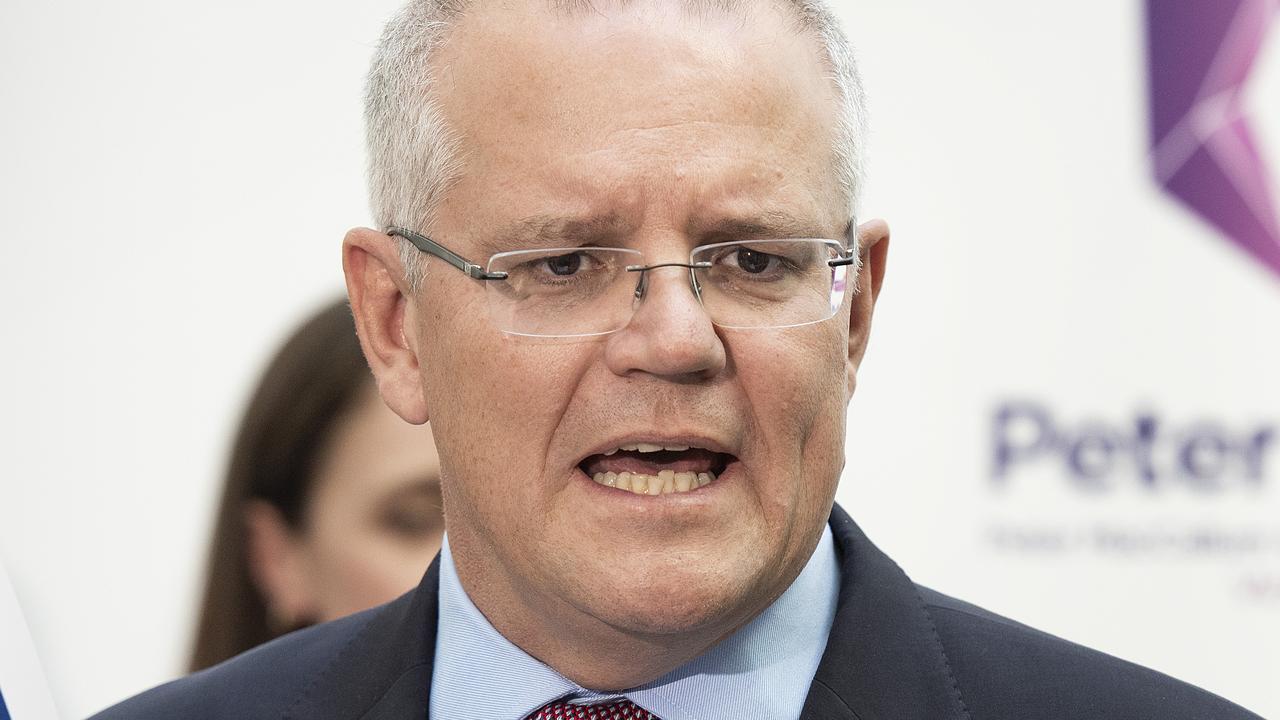Voters prefer price cut to Paris accord
One in two Australians believes the Paris accord should be dumped if that helps deliver cheaper power, Newspoll finds.

One in two Australians believes that the Paris accord on climate change should be dumped if breaking the agreement delivered cheaper domestic power prices, exposing a deep electoral division over Prime Minister Malcolm Turnbull’s commitment to honouring the target.
The apparent weakening of support for the international agreement as a policy priority over affordable power also comes as Queensland heads to a November 25 election in which energy is likely to become a key cost-of-living issue.
Labor Premier Annastacia Palaszczuk began her election campaign on Sunday by restating her government’s commitment to renewable energy.
The LNP Opposition criticised Labor’s renewables target as “reckless” and instead backed the federal government’s goal of 23.5 per cent renewables by 2020 while committing to building a coal-fired power plant if elected.
A Newspoll survey, conducted exclusively for The Australian, has revealed that 45 per cent of Australians would now support abandoning the non-binding target, which requires Australia to reduce emissions to 26-28 per cent on 2005 levels by 2030, if it meant lower household electricity prices.
This compares to 40 per cent who would oppose opting out of the agreement, with 15 per cent of people uncommitted. Significantly, more than a third of Labor voters backed ditching the Paris target when asked to consider whether the economic cost outweighed the likely benefit, while 54 per cent of Coalition voters backed withdrawing from the agreement if it did.
With One Nation likely to play a deciding hand in the Queensland election, the poll revealed 70 per cent of the party’s voters supported ditching the treaty if it led to lower electricity prices.

The Newspoll survey was based on 1623 interviews of voters across regional and metropolitan communities and conducted between October 26-29. It asked: “Donald Trump has announced that the US is pulling out of the Paris climate change agreement as the cost outweighed the likely benefit. If pulling out could result in lower electricity prices would you be in favour or opposed to Australia pulling out of the Paris climate change agreement?”
Queensland One Nation leader Steve Dickson said the party was against the agreement and renewables targets that had been “pushed on to Australians”.
“If One Nation held the balance of power after the November 25 election, it would stop any further renewables projects in Queensland that is part of Labor’s 50 per cent target by 2030,” Mr Dickson said.
“We will obviously keep the existing projects, but no more. The government has got a number of planned solar and wind projects that we will not support funding if we hold the balance of power. The impact on taxpayers is too much, and the impact on the price of electricity is too much.”
Both the Prime Minister and Opposition Leader Bill Shorten have committed Australia to honouring the Paris accord commitments, which critics argue will come with an economic cost to be paid for by energy consumers.
Mr Turnbull, however, has argued that his National Energy Guarantee will deliver both by dropping subsidies for renewable energy sources while imposing emissions targets on the electricity sector, leading to lower prices of up to $115 a year while keeping Australia on track to meet the Paris emissions target.
However, there is still open hostility to the Paris goal within the conservative ranks of the Coalition partyroom, which will be reinforced by the poll results.
The poll is the first to directly gauge voter priority over pricing and emissions targets and shows a clear preference for pricing to determine policy rather than Australia’s international climate change commitment.
The chair of the government’s energy policy committee, Sydney-based MP Craig Kelly, said the decision to ratify the Paris treaty was made by Mr Turnbull without consultation of the Coalition partyroom and should be reconsidered. “People are now starting to realise this Paris target has a cost to the economy … and people will have to pay out of their hip pockets,” Mr Kelly told The Australian.
In June, 48 per cent of Australians claimed the commitment should be maintained despite US President Donald Trump’s decision to pull out of the international agreement. Only 22 per cent agreed this was reason enough to abandon the treaty.
But in the latest poll, when keeping to the agreement was weighed against lower power prices, support to stay in the treaty dropped to 40 per cent.
Several Coalition MPs had previously called for the government to reconsider the commitment, including Queensland senator Ian Macdonald who argued for a review of the policy in light of the US withdrawal.
Of Coalition voters, 54 per cent were in favour of withdrawing, while 34 per cent were opposed and 12 per cent undecided. A significant bloc of Labor voters, 37 per cent, was also in favour while 50 per cent were opposed.
Support for the treaty was highest among Greens voters: 71 per cent opposed to pulling out; with 17 per cent in favour of abandoning it.
According to the Department of Energy and Environment, Australia’s commitment to a Paris target of limiting temperature increases this century to below 1.5C, requires a 50-52 per cent reduction in emissions per capita with a corresponding 64-65 per cent reduction in the emissions intensity of the wider economy between 2005 and 2030.
Australia is estimated to be responsible for about 1.3 per cent of global greenhouse gas emissions.
Danish climate sceptic Bjorn Lomborg has said the difference between a world with all the promised Paris cuts and one without them is just 0.05C.
He said even if every nation including the US extended its carbon cut promises past 2030 and kept them going throughout the century, temperatures would drop by less than 0.2C.
Ben Oquist, executive director of The Australia Institute, said voters did not need to choose between the two as renewables were cheaper than coal and new gas.
Additional reporting: Sarah Elks



To join the conversation, please log in. Don't have an account? Register
Join the conversation, you are commenting as Logout